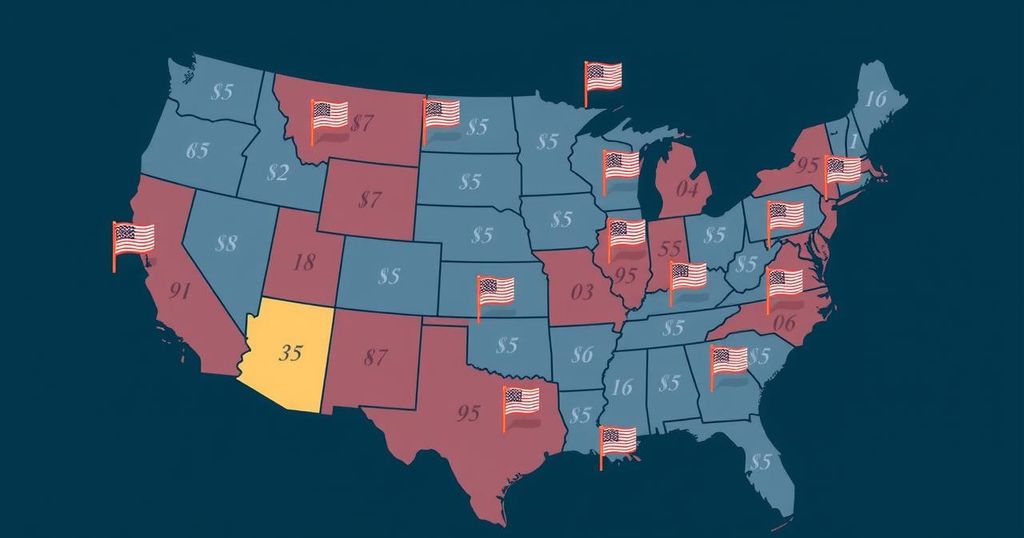Voters across multiple states decisively rejected election reforms aimed at introducing ranked choice voting and open primaries, despite extensive fundraising efforts exceeding $110 million. Advocates had anticipated momentum from past successes, but current results indicate a strong preference for traditional voting methods. This setback raises questions about future strategies for promoting electoral reform amidst voter skepticism.
In the recent elections across various states in the US, significant attempts to reform voting processes—particularly through ranked choice voting and open primaries—met with widespread voter resistance. Activists had rallied support ahead of the election, anticipating a shift from traditional partisan primaries to more inclusive voting methods. However, voters in states such as Arizona, Colorado, and Nevada largely rejected these proposals despite heavy investment, totaling approximately $110 million in advocacy efforts.
The proposals aimed to unify candidates from all parties on a single ballot in open primaries, while ranked choice voting would allow individuals to select multiple candidates in a preferred order. The election reform movement, bolstered by initial wins in Alaska and Nevada in prior years, saw their momentum falter this year as many voters expressed a preference for the existing electoral system. John Opdycke of Open Primaries commented on the unexpected outcome, stating, “It turns out, in retrospect, we weren’t yet ready for prime time.”
Despite supporters’ beliefs in the effectiveness of these methods—citing success in avoiding vote-splitting and increasing candidate viability—rejecting these reforms revealed a lingering attachment to traditional voting methods. In Portland, Oregon, the inaugural use of ranked choice voting yielded a victor after a lengthy tabulation process, yet participation levels raised concerns about voter engagement. Critics argue that complexities inherent to ranked choice voting may disenfranchise some voters, especially within communities of color.
Going forward, proponents of electoral reform are contemplating strategy modifications. They may reconsider the dual push for both open primaries and ranked choice voting in favor of a more phased approach, emphasizing grassroots support and direct engagement prior to major campaigns. Unite America, a significant financial backer, is also re-evaluating its tactics to enhance the effectiveness of its advocacy moving forward.
The movement for election reform across the United States has sought to modernize and democratize the electoral process through initiatives such as ranked choice voting and open primaries. These methods aim to lessen partisanship, amplify candidate diversity, and ultimately enhance voter representation. Historically, initiatives for these reforms have shown promise in select states, but the recent elections illustrate significant voter apprehension towards abandoning traditional voting methods, despite substantial financial backing from reform advocates. The implications of these results highlight a critical gap between reform aspirations and voter readiness to adopt such changes.
The recent elections underscore a substantial setback for the election reform movement in the United States, with voters across various states rejecting proposals aimed at altering the traditional electoral process. Despite a significant financial push, advocates face challenges in overcoming voter skepticism and confusion regarding new voting methods. Moving forward, a reevaluation of strategies appears necessary, with potential shifts toward building grassroots support and focusing on incremental changes rather than sweeping constitutional amendments.
Original Source: gazette.com






